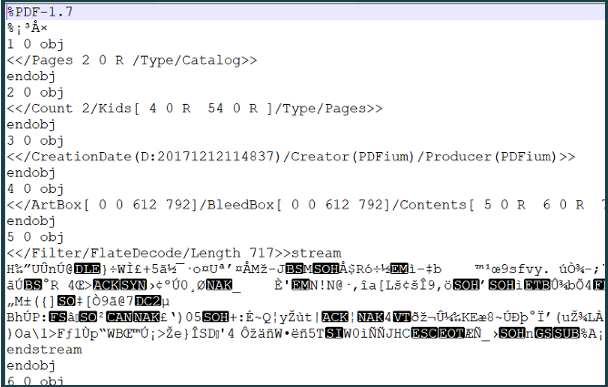Back in 2015, Sensible Code's Francis Irving posted a blog titled Amazingly, PDFs are more popular each year - 3 years later and that statement is still true.
The chart from Google Trends below illustrates the use of search term "pdf", since 2004, relative to the total search-volume across the world. Since 2009, "pdf" shows an ever-increasing popularity, compared to "excel".
The search term "pdf to excel" has also been increasing in popularity - by 56% since December 2013 in fact.
A brief history
PDF stands for Portable Document Format. In the past, computer users would struggle to create a document that would look the same on their computer as well as the computer of the person they wanted to send it to. Fonts, layouts and colours could change depending on the computer and program used. To overcome this issue, the document would be printed and then shared, resulting in stacks of paper around the office. That's when, in the 1990s, John Warnock, one of Adobe’s founders, decided that a paperless office was the way forward and the PDF was born.
Version 1.0 of PDF was released in 1993 - you could add internal links, bookmarks and fonts. However, the only color range supported was RGB. In order to create a PDF, you had to pay a steep price for Adobe software. As you can imagine, this didn't make PDF very popular. The charges were soon dropped and a free version of Acrobat Reader was launched. New versions have been developed and released since, adding more features and enhancements, to get to where we are today with PDF 2.0.
Why do we use PDF today?
If you were to open a PDF in a text editor, you'll see a mix of letters and numbers that will likely mean very little to you, as shown below. However, this forms the structure of your document and presents your document in a format that is independent of the software, device or operating system used. Therefore, the PDF format is useful for presenting text, graphics and spreadsheets on one page knowing it will look the same no matter where or how you present it.

There are many uses of PDF for companies and individuals worldwide. For example, if you want to send an invoice to someone that isn't at risk of being tampered with, PDF format is a pretty safe bet. Or if you're sending your CV off and want to make sure your prospective employer sees your masterpiece just as you do on your device. PDF plays a big role in the operations of large institutions - processing millions of PDFs every year. Extracting useful information from PDFs can be a slow and manual process. You could copy and paste from a computer generated PDF, however the costs involved with this approach can mount up, especially when processing many PDFs. But, the solution to this expensive process is a PDF converter such as PDFTables.
PDFTables can convert and extract useful information from PDFs at an average rate of 3 pages per second. Our Enterprise On-Premises solution allows users to host PDFTables locally, within their own network. Many of our customers rely on this solution in their everyday processes for extracting sensitive data from PDF documents such as invoices and bank statements.
Digital Transformation Era
Seeing the trends over the past 9 years, it's likely that these will continue for the foreseeable future and PDF will become increasingly more popular. As digital transformation becomes a key focus in businesses today, tools like PDFTables will be in higher demand and we intend to test and develop our software to ensure we are always offering the best service. Is your business in need of a digital transformation? Do you work with lots of PDFs? Get in touch if you'd like to know more about our offerings.


